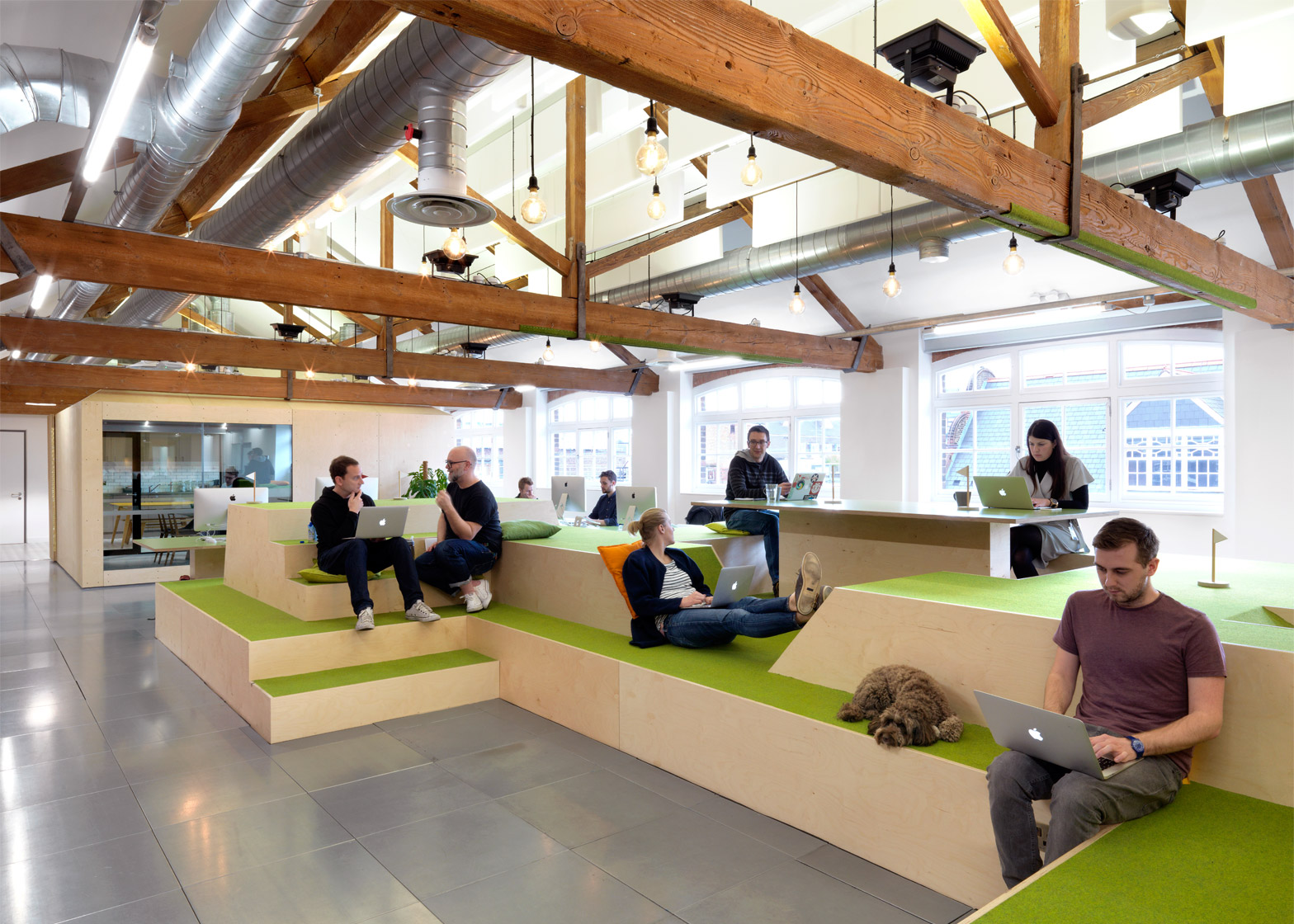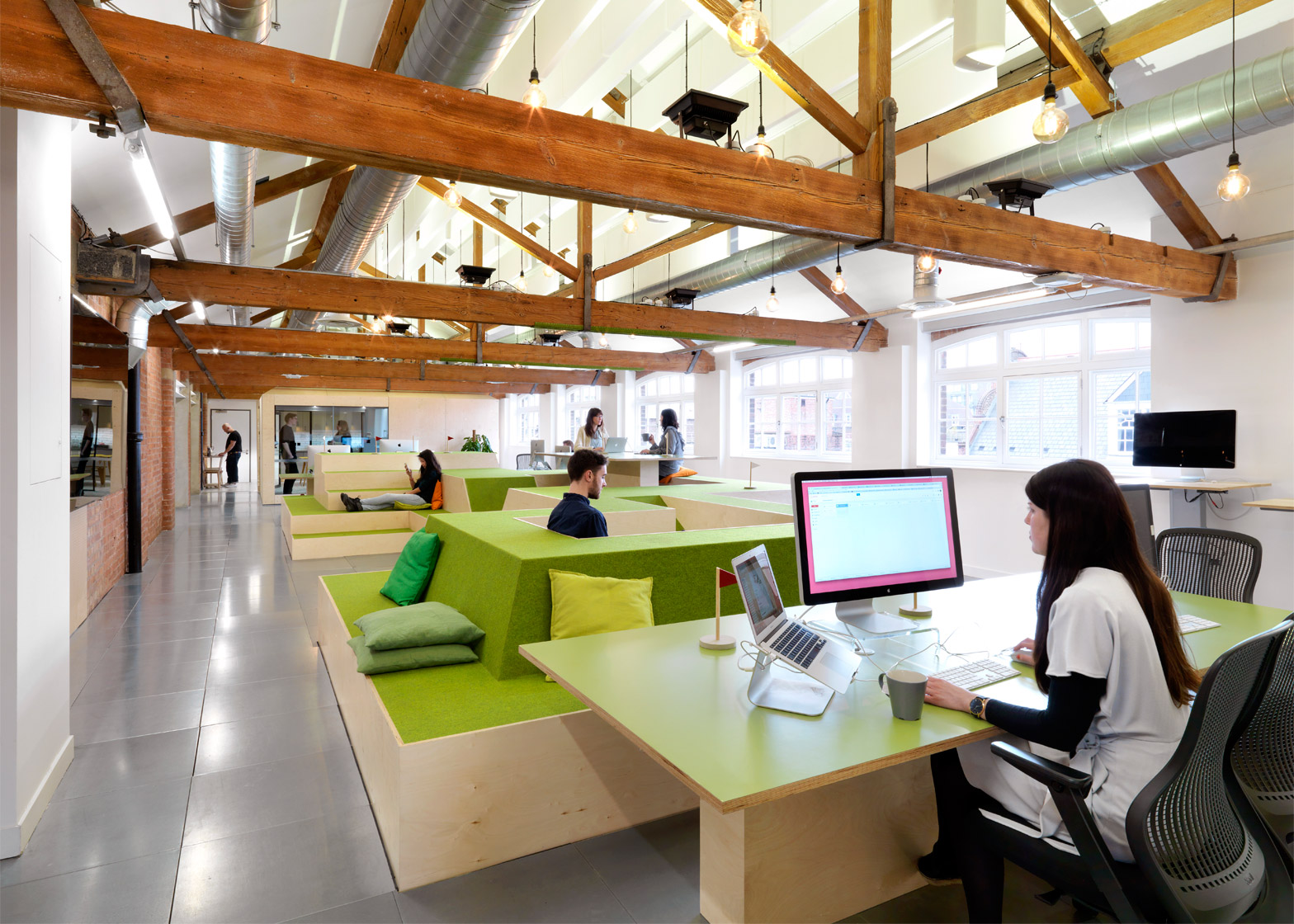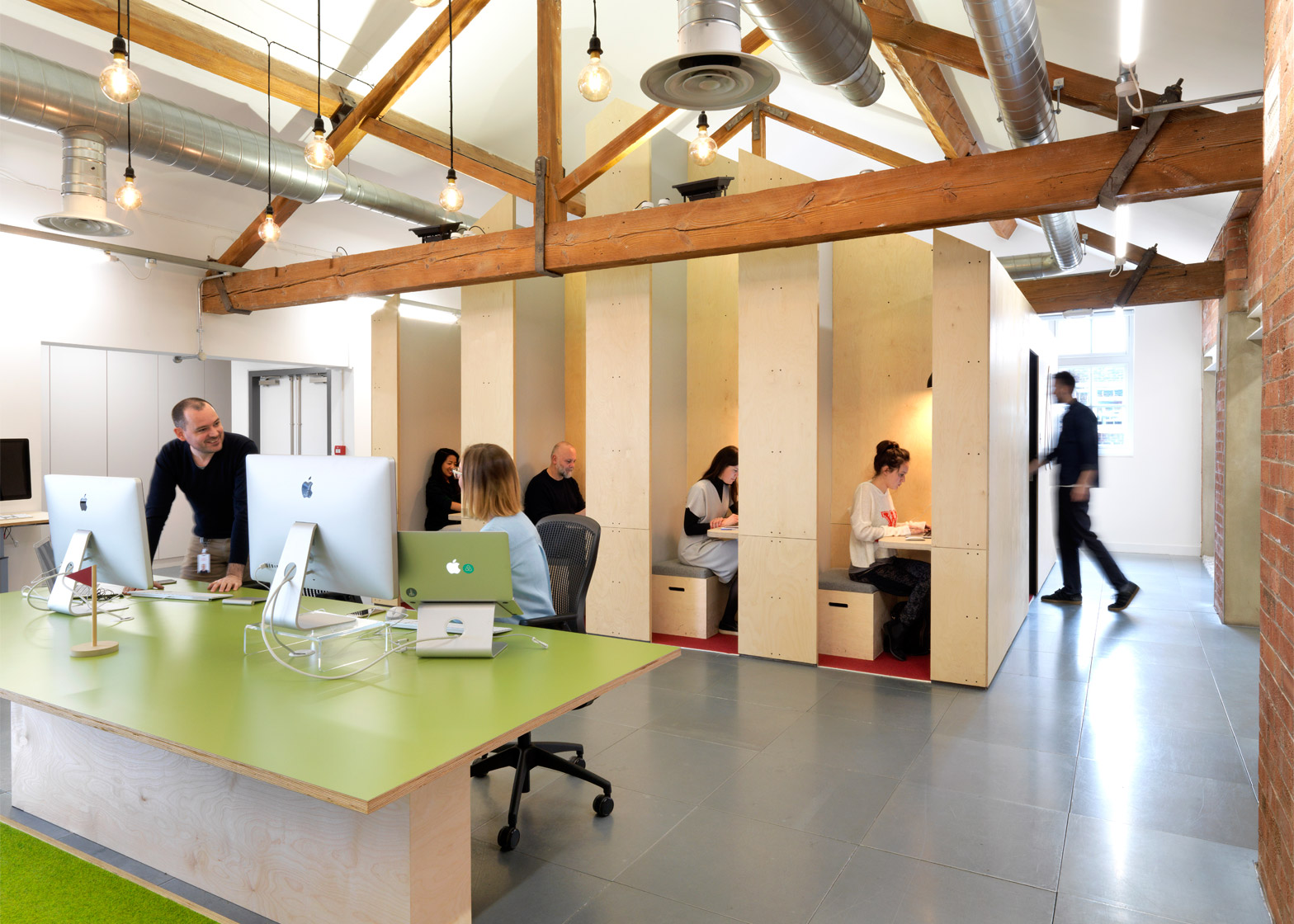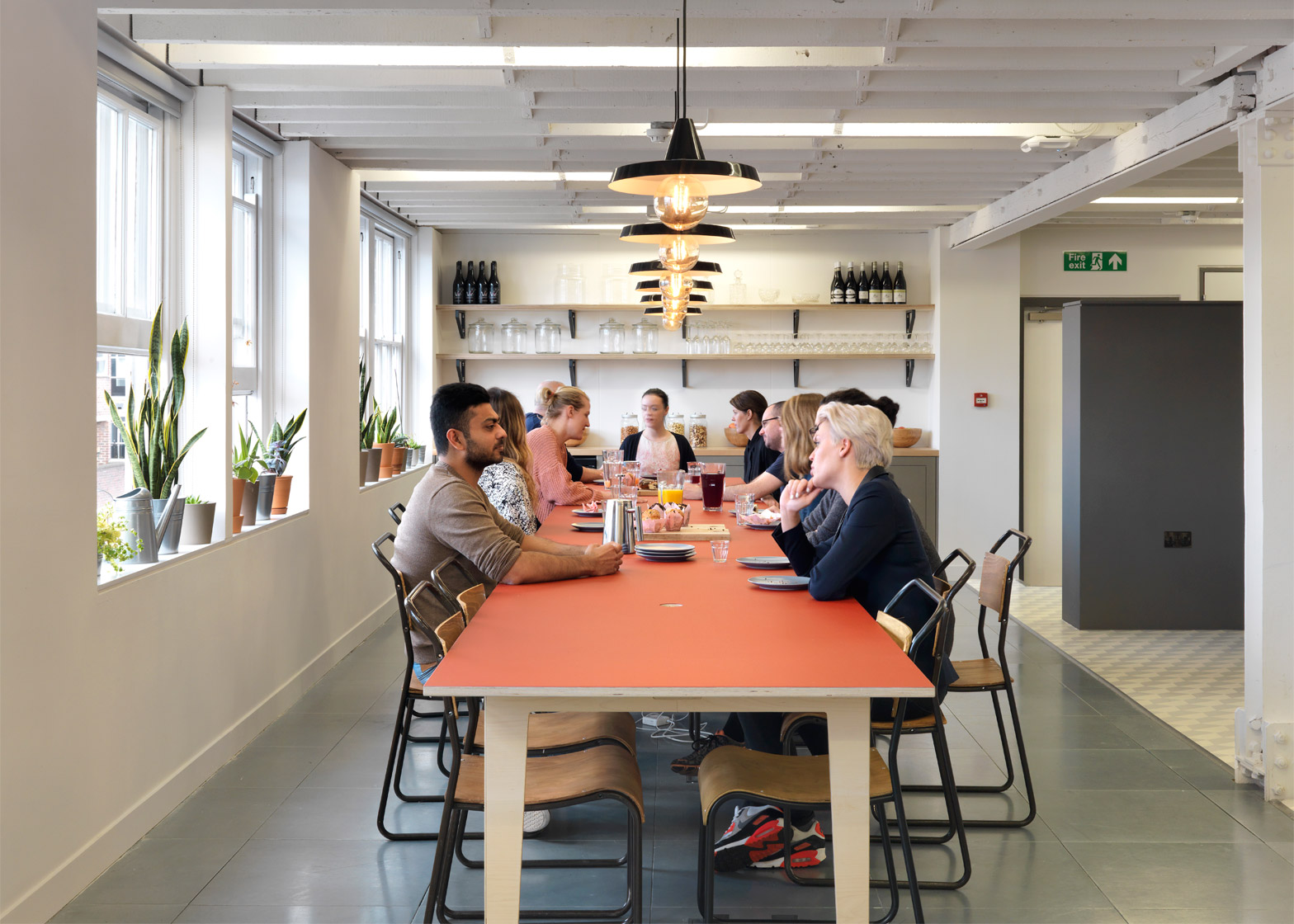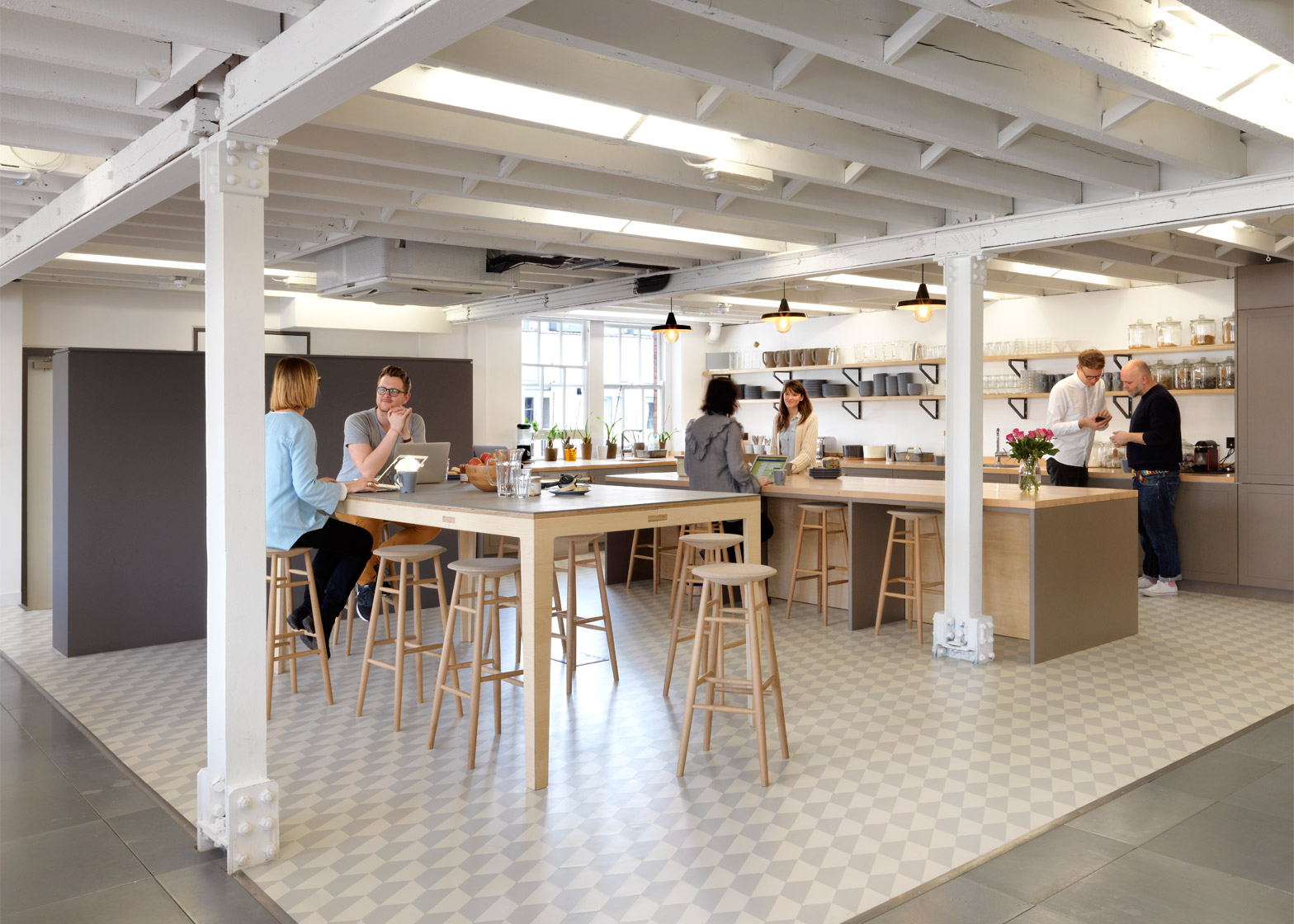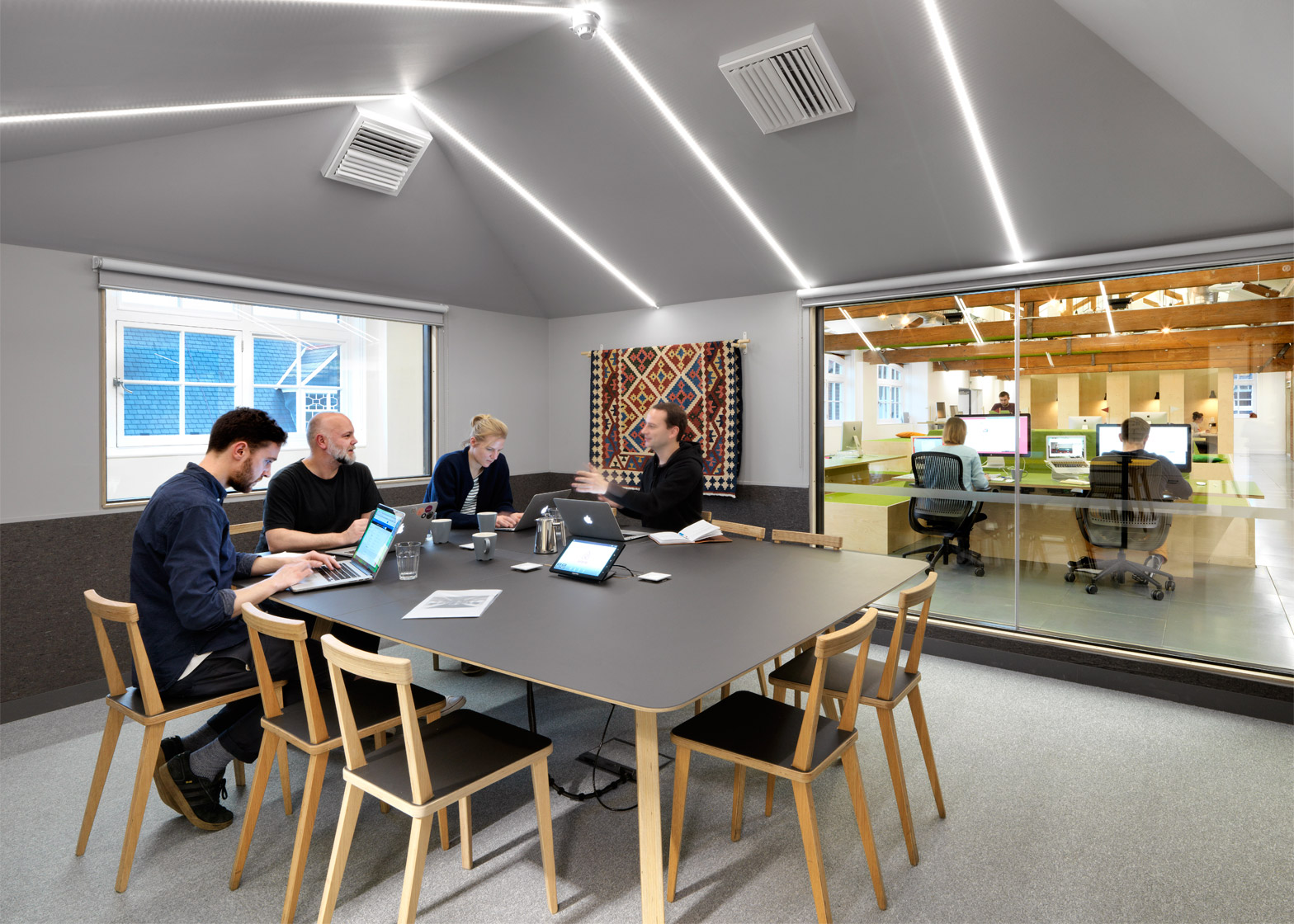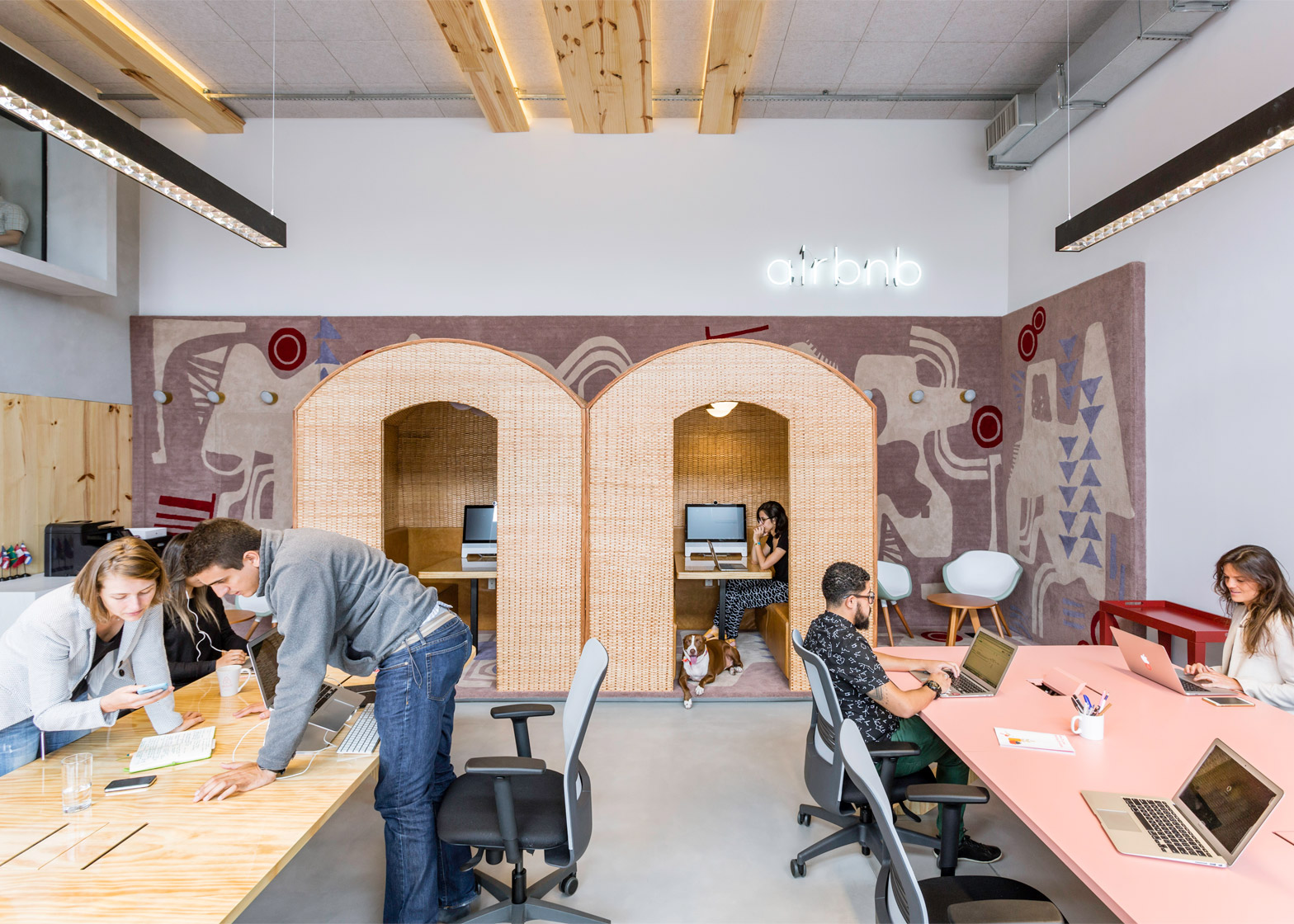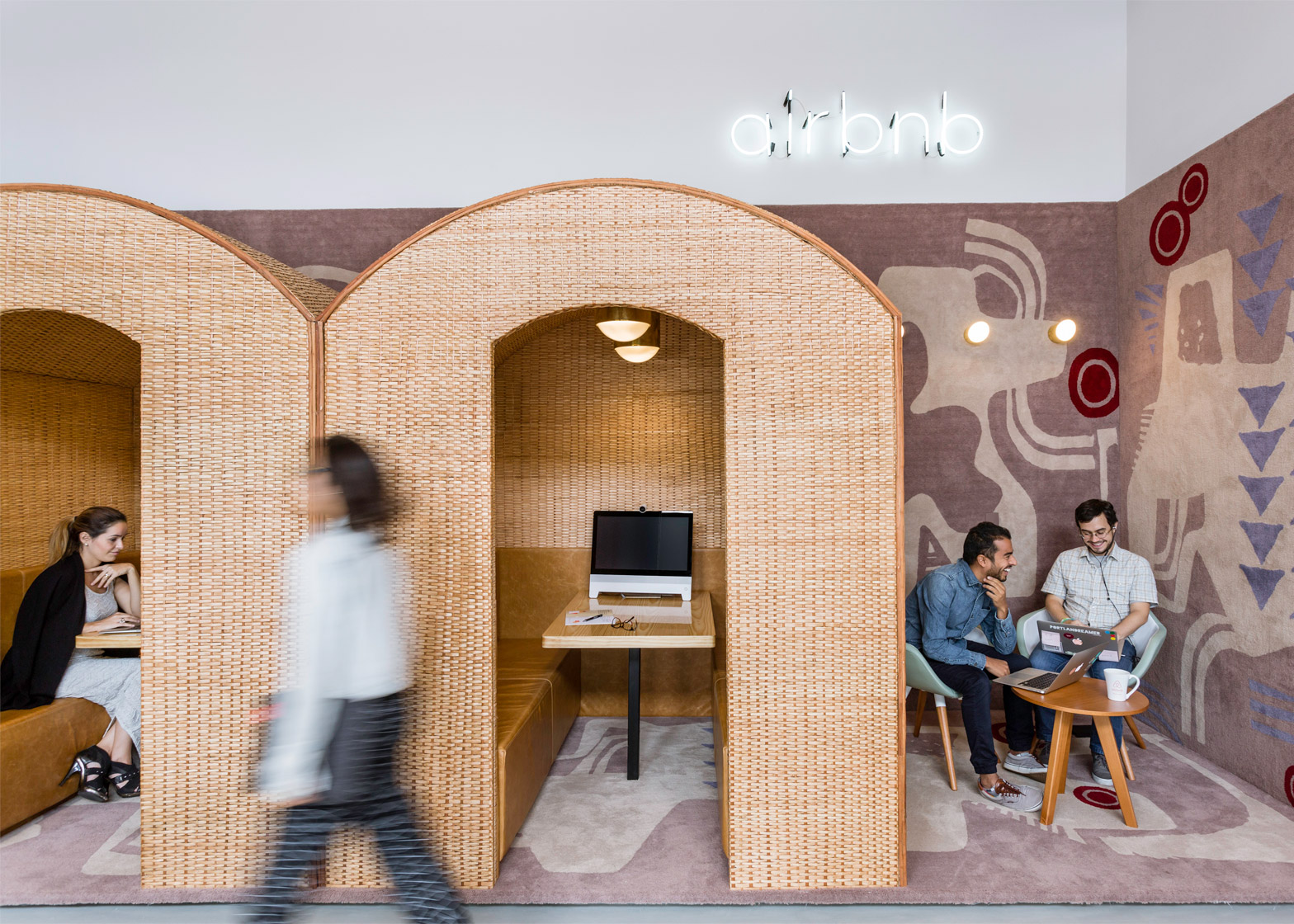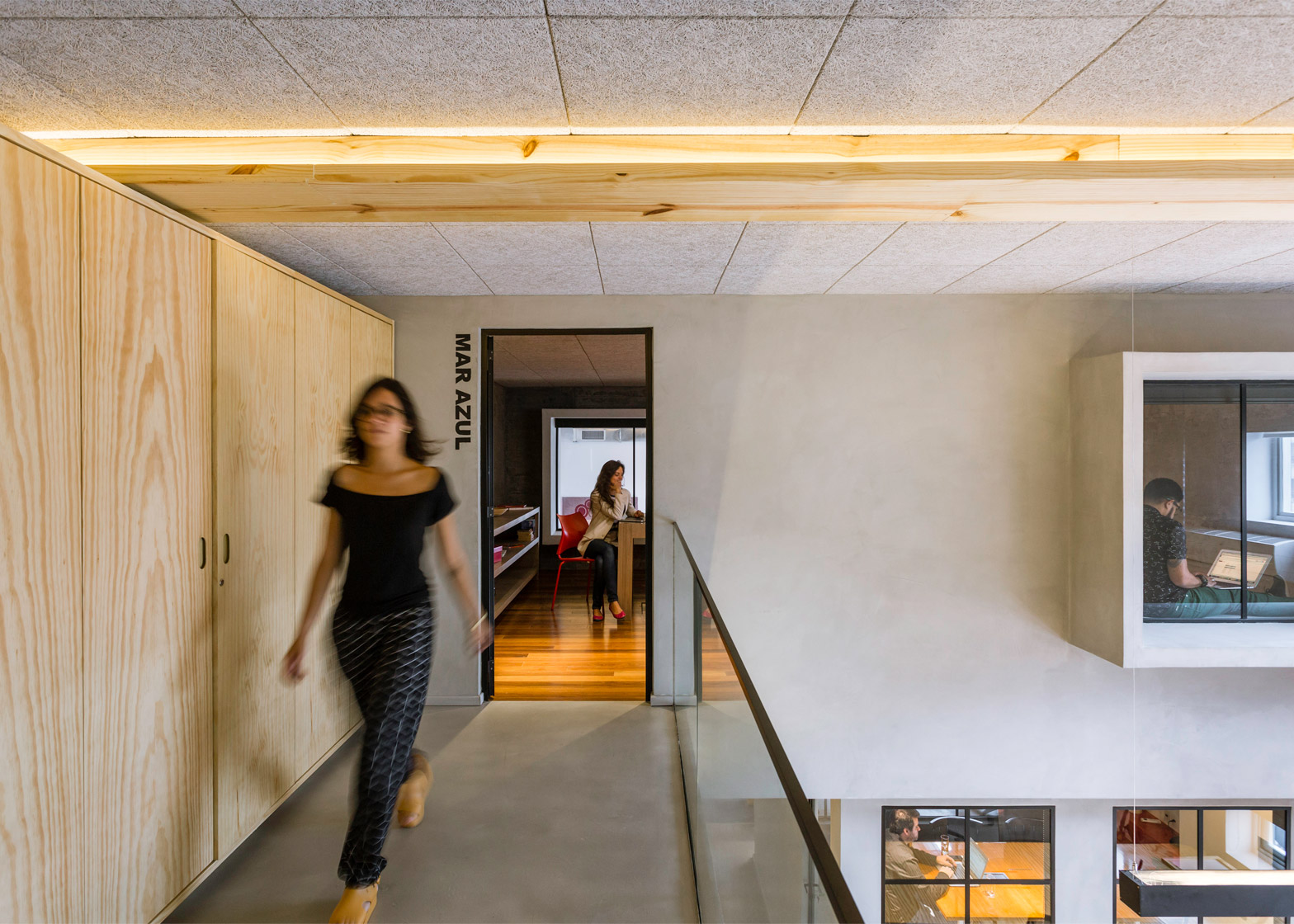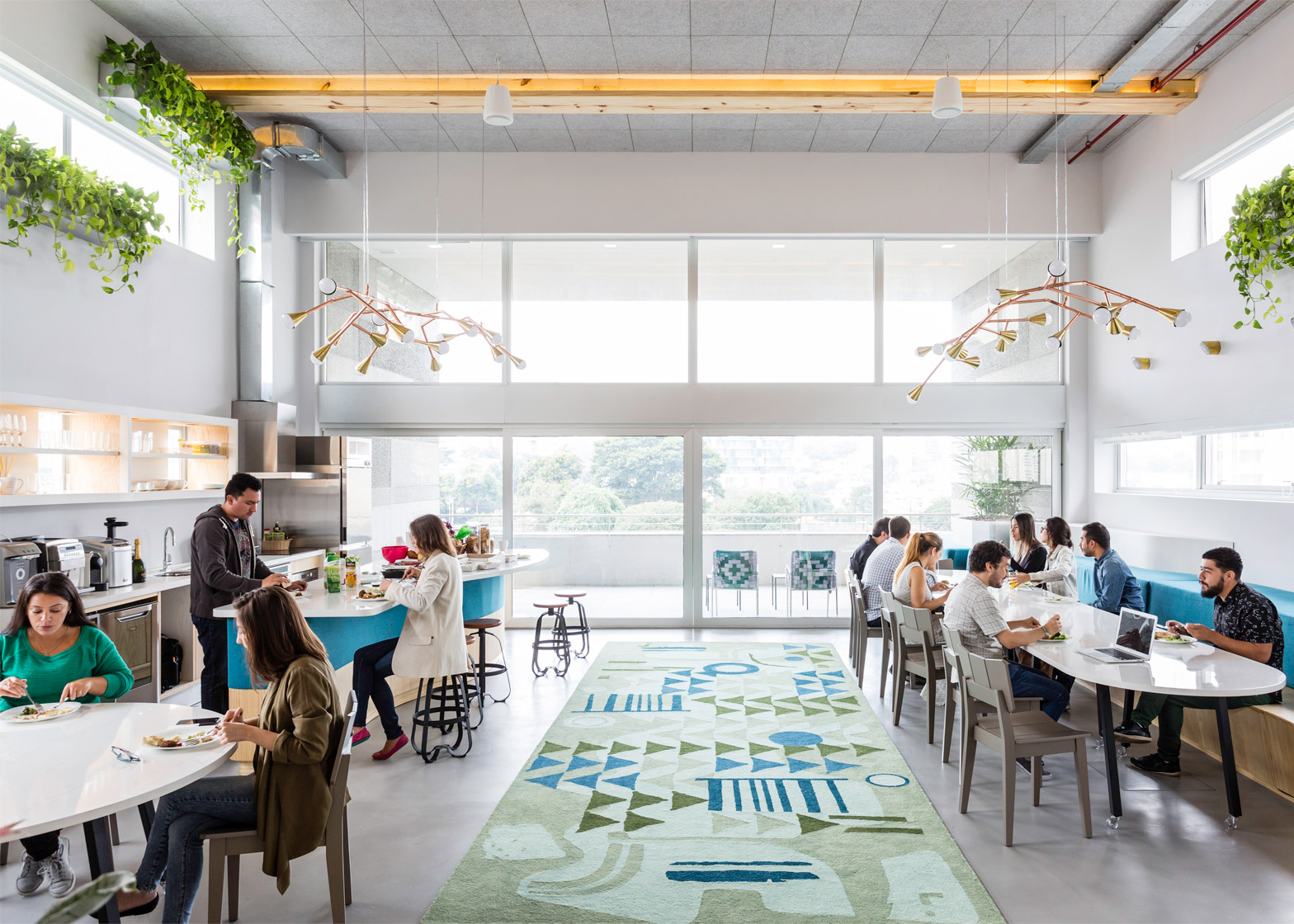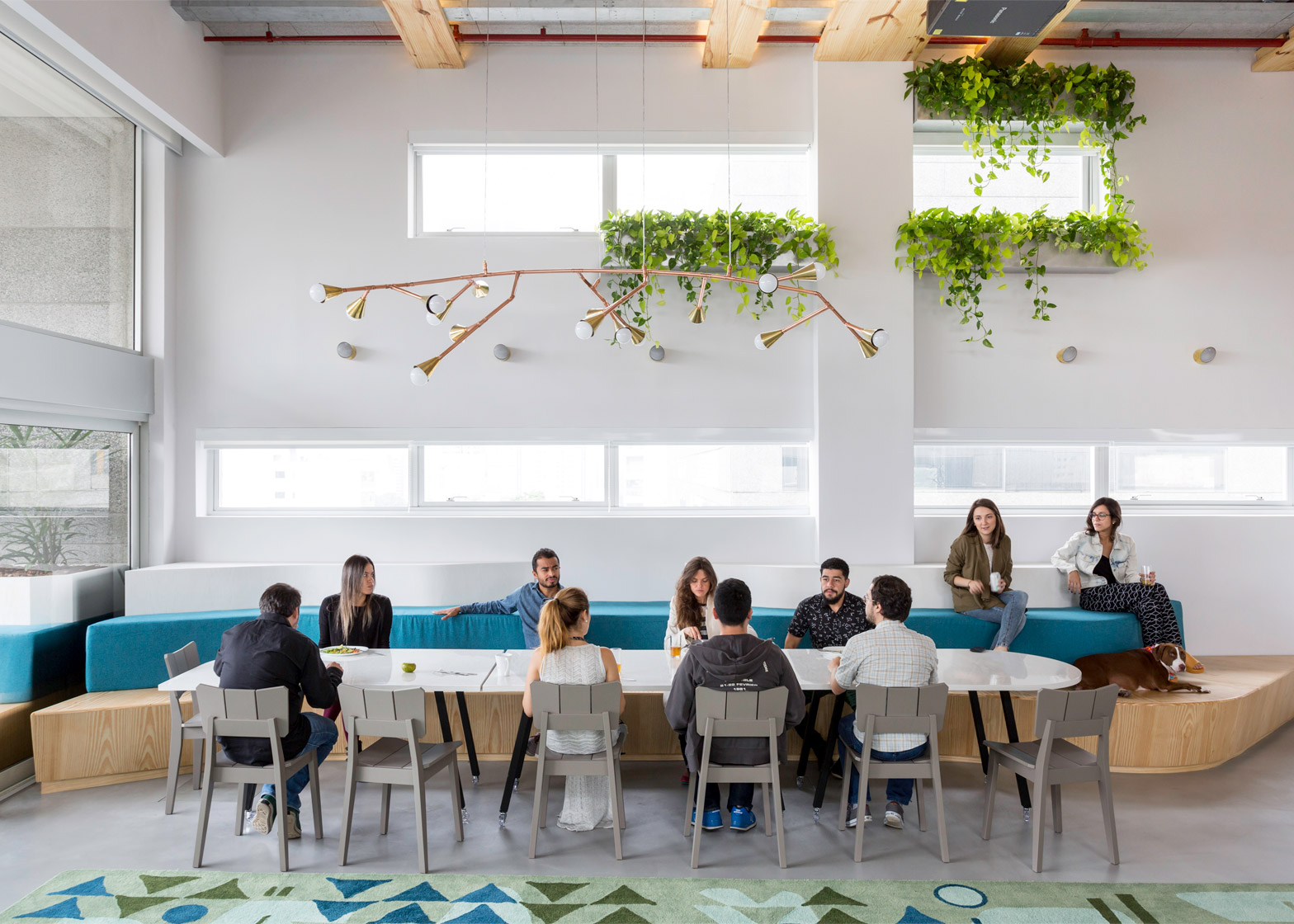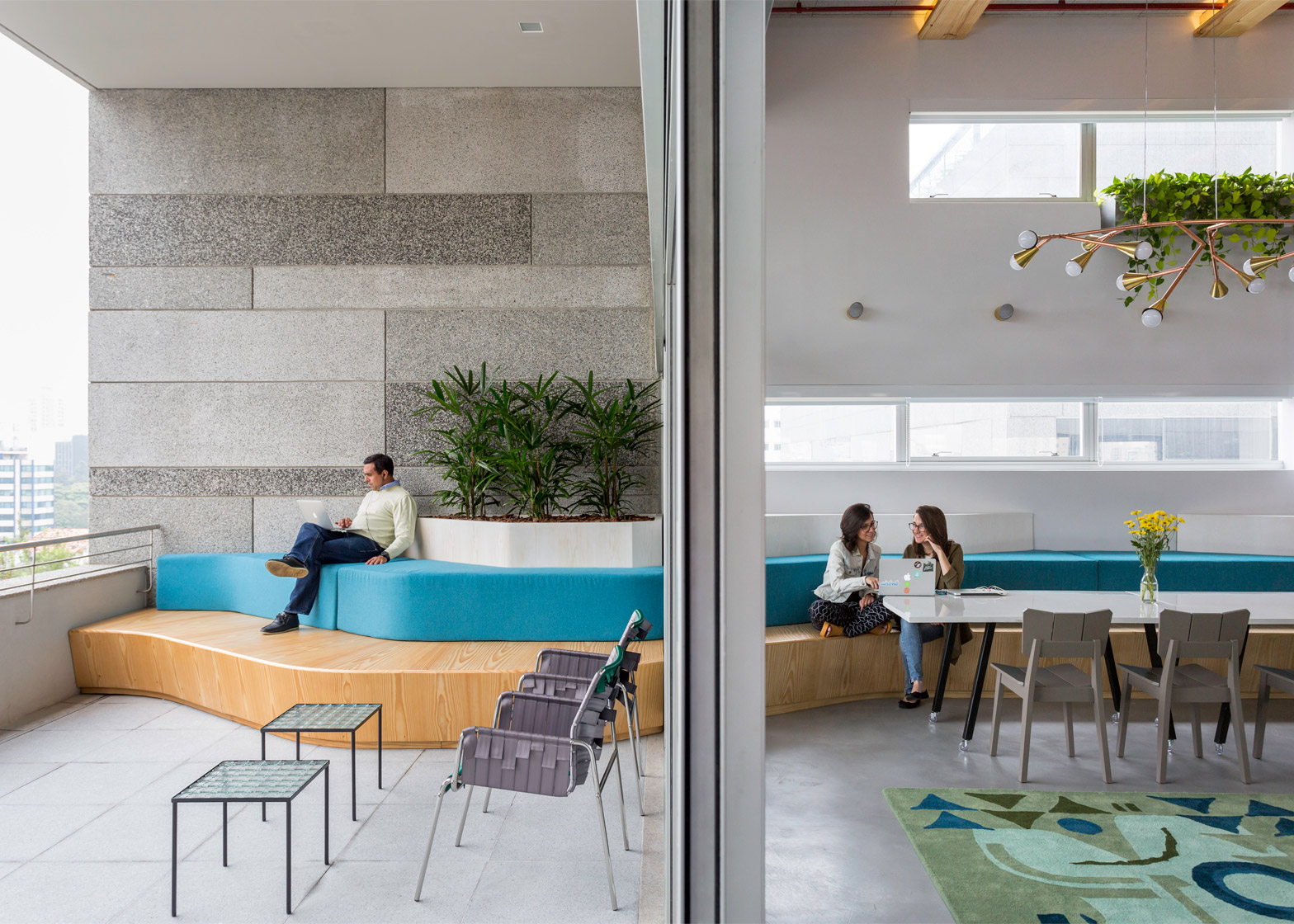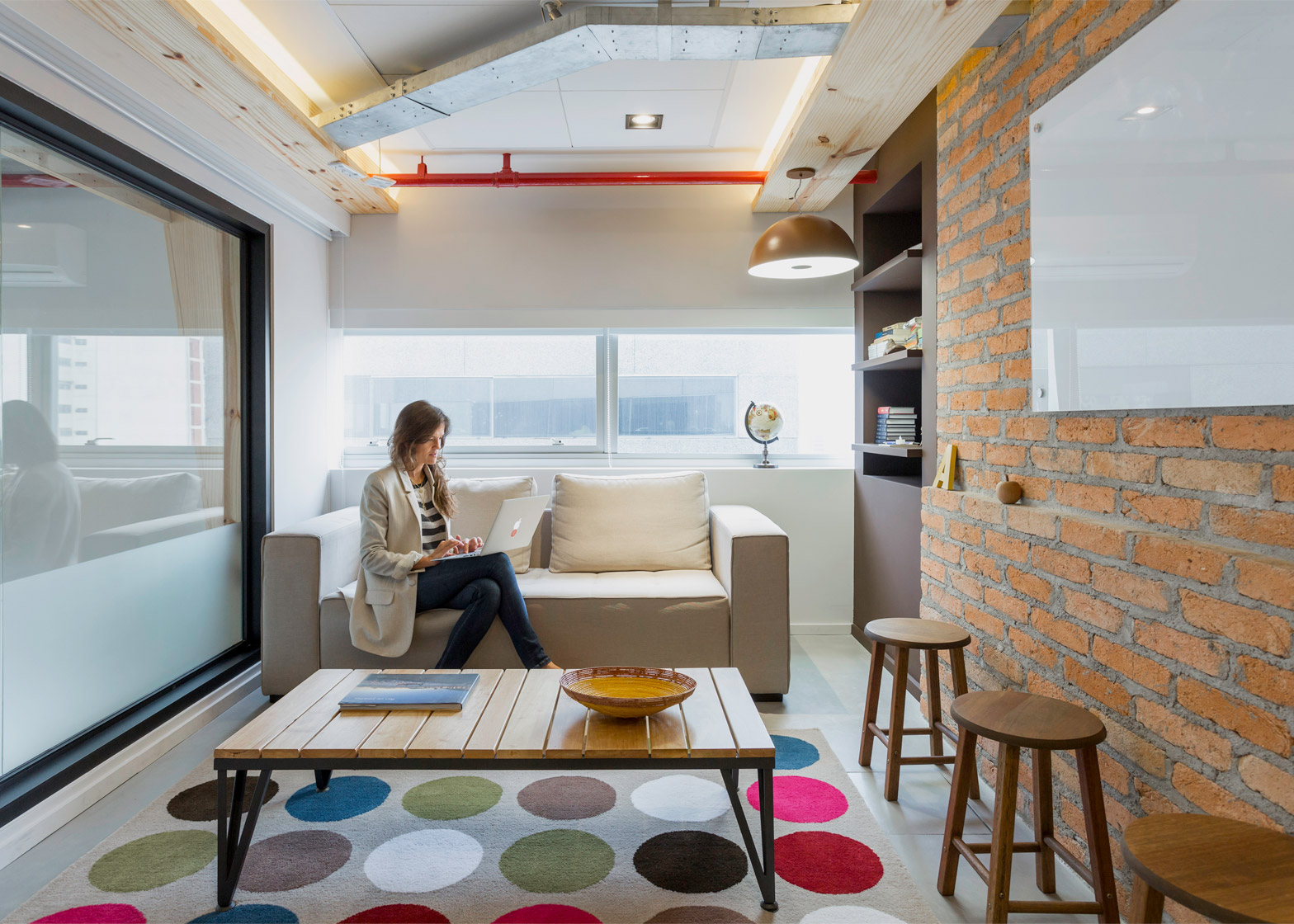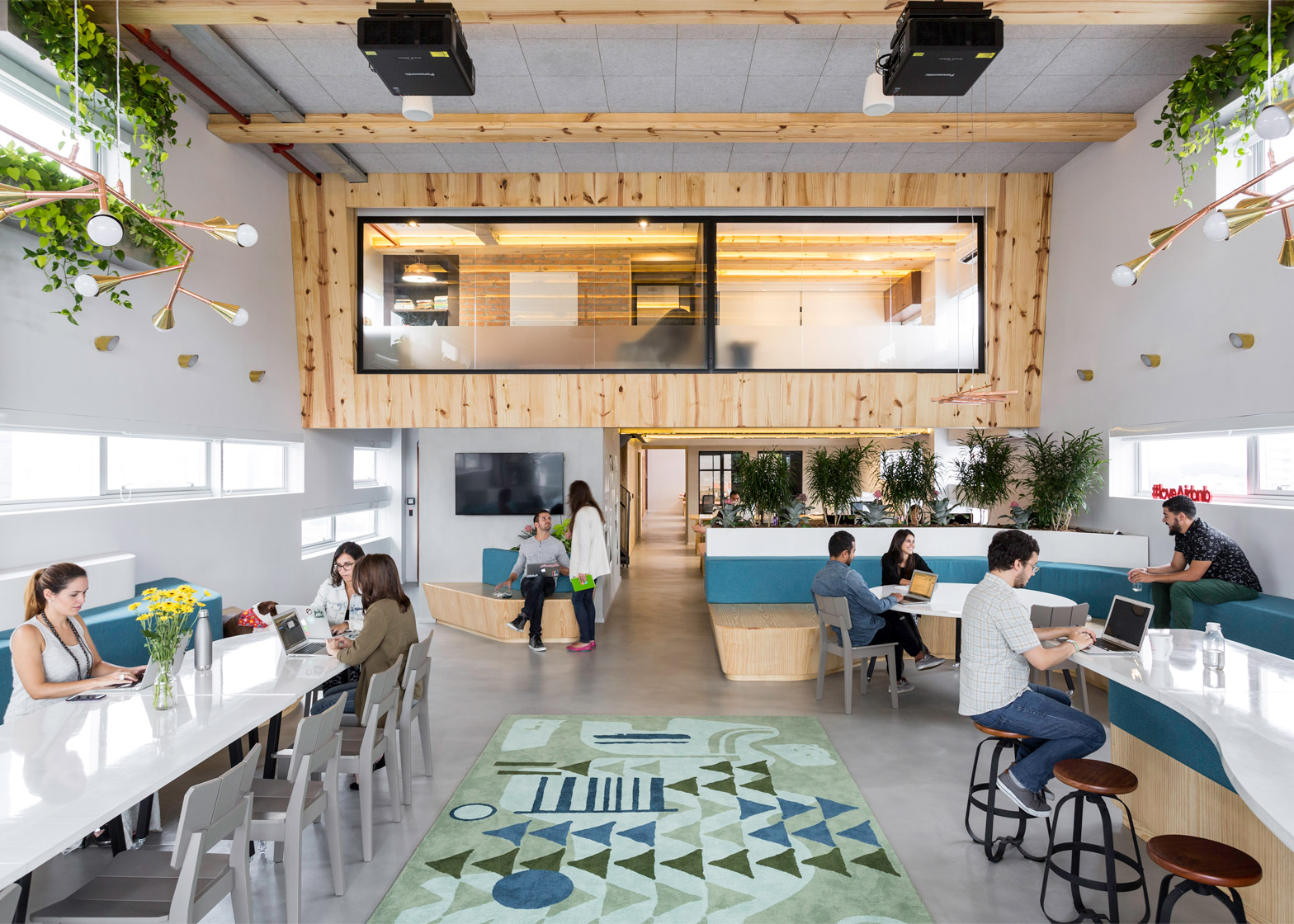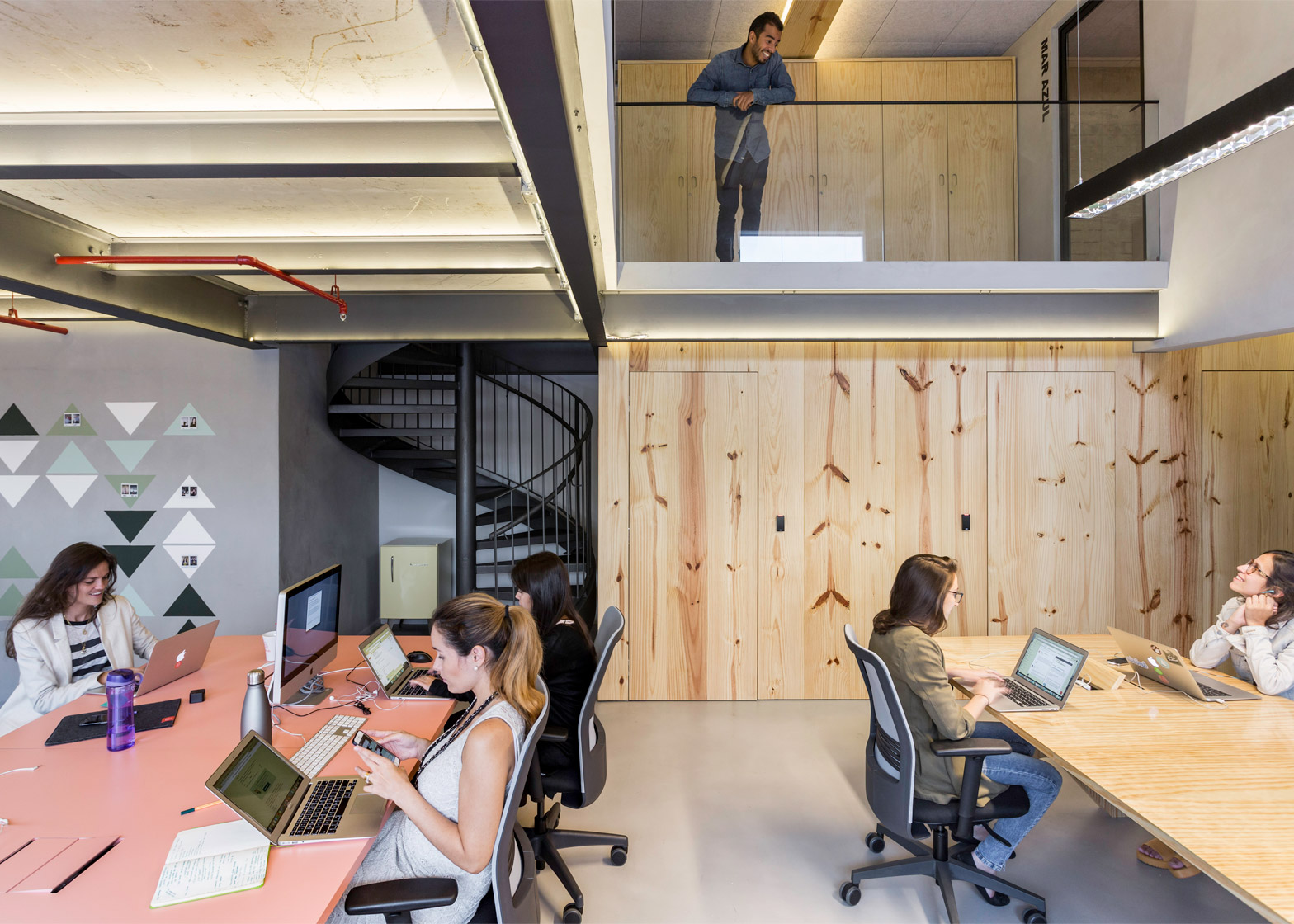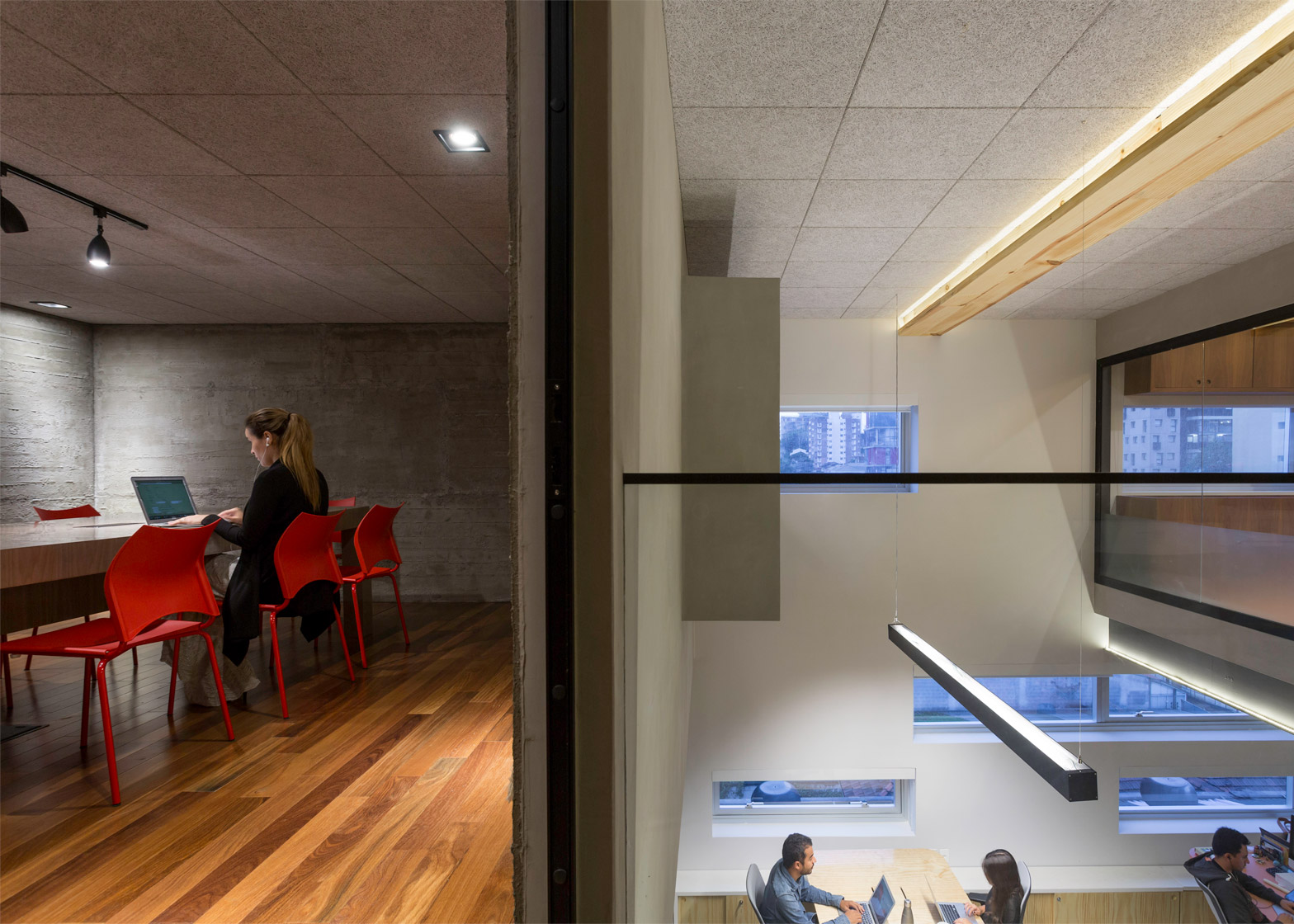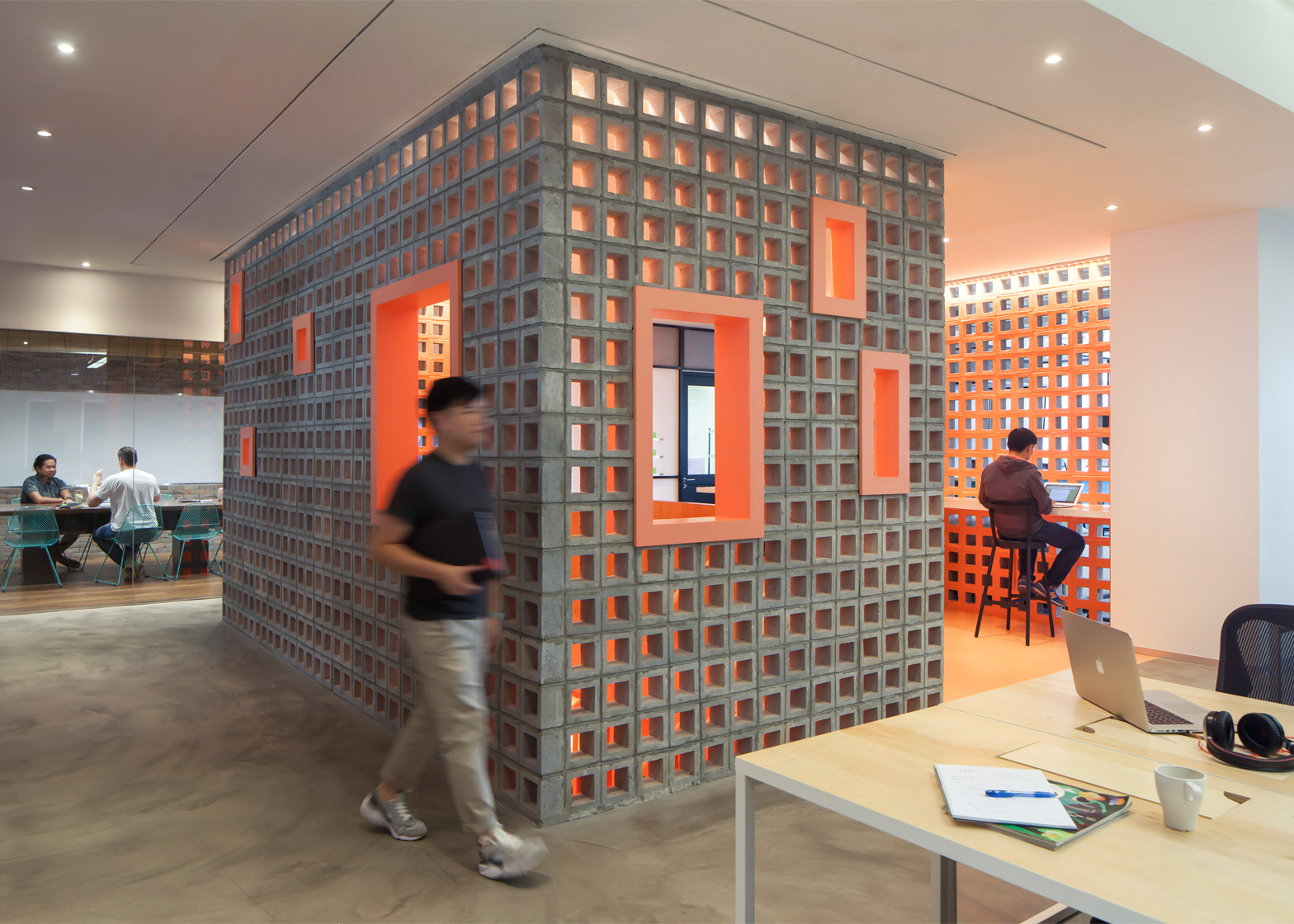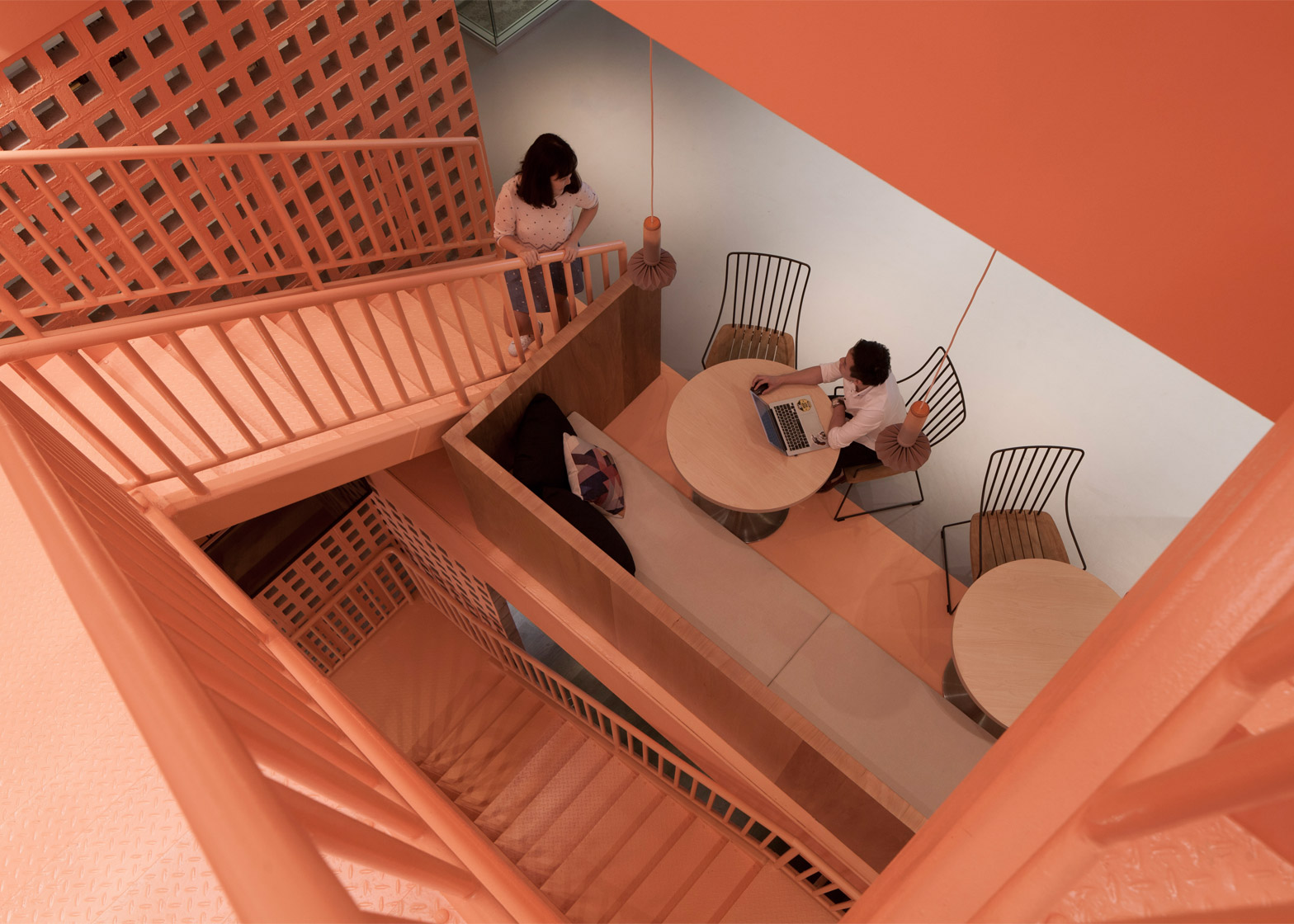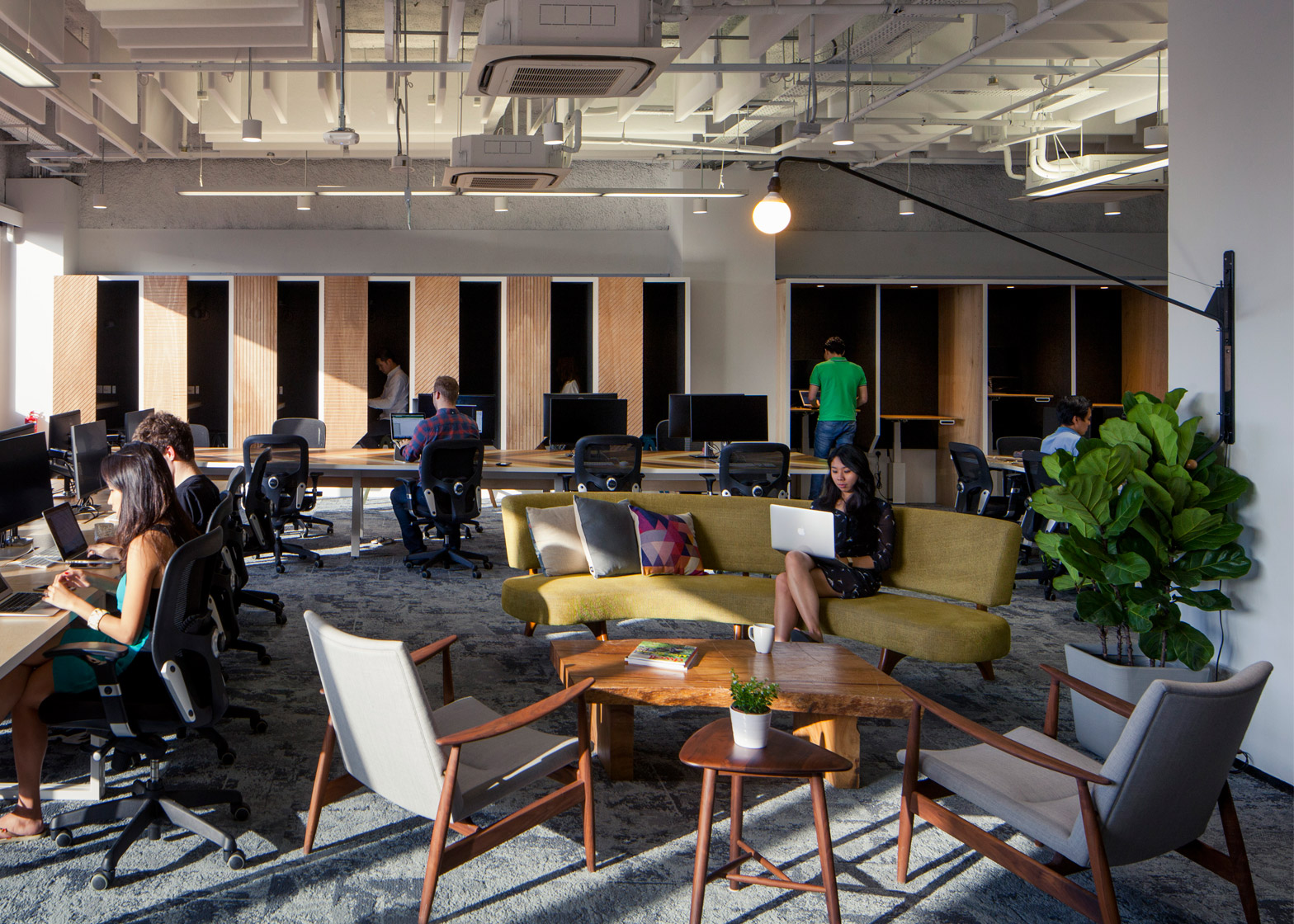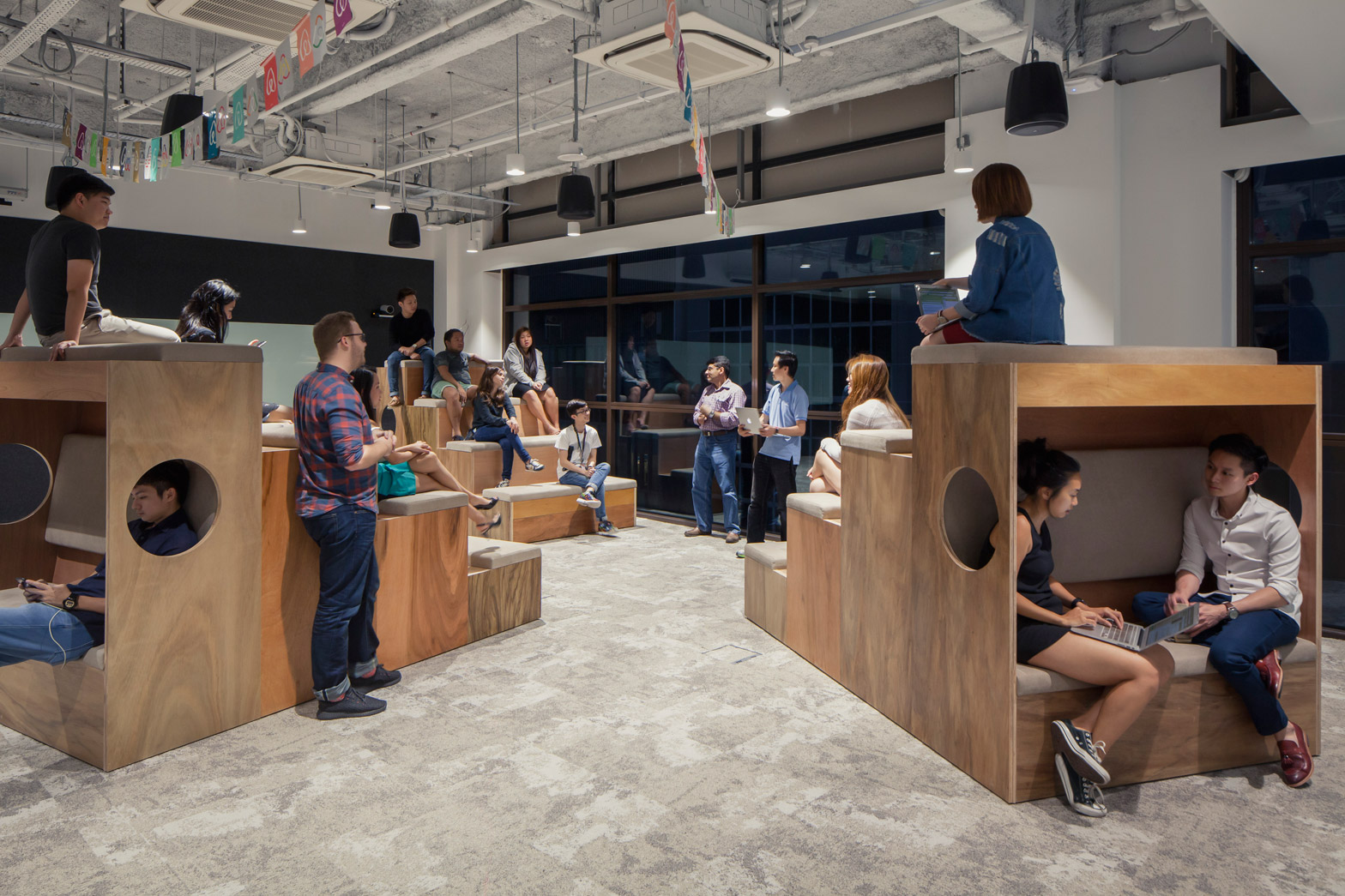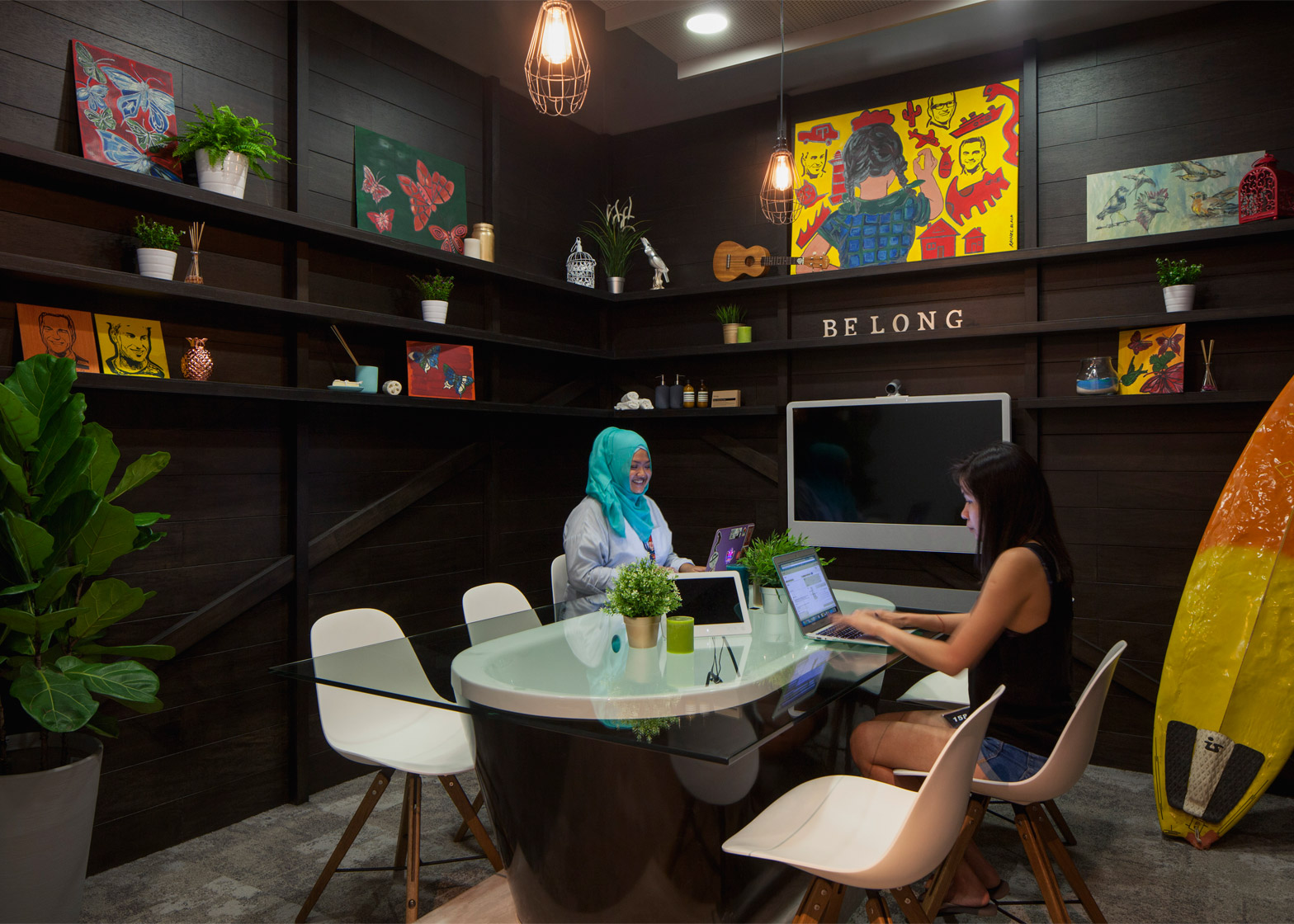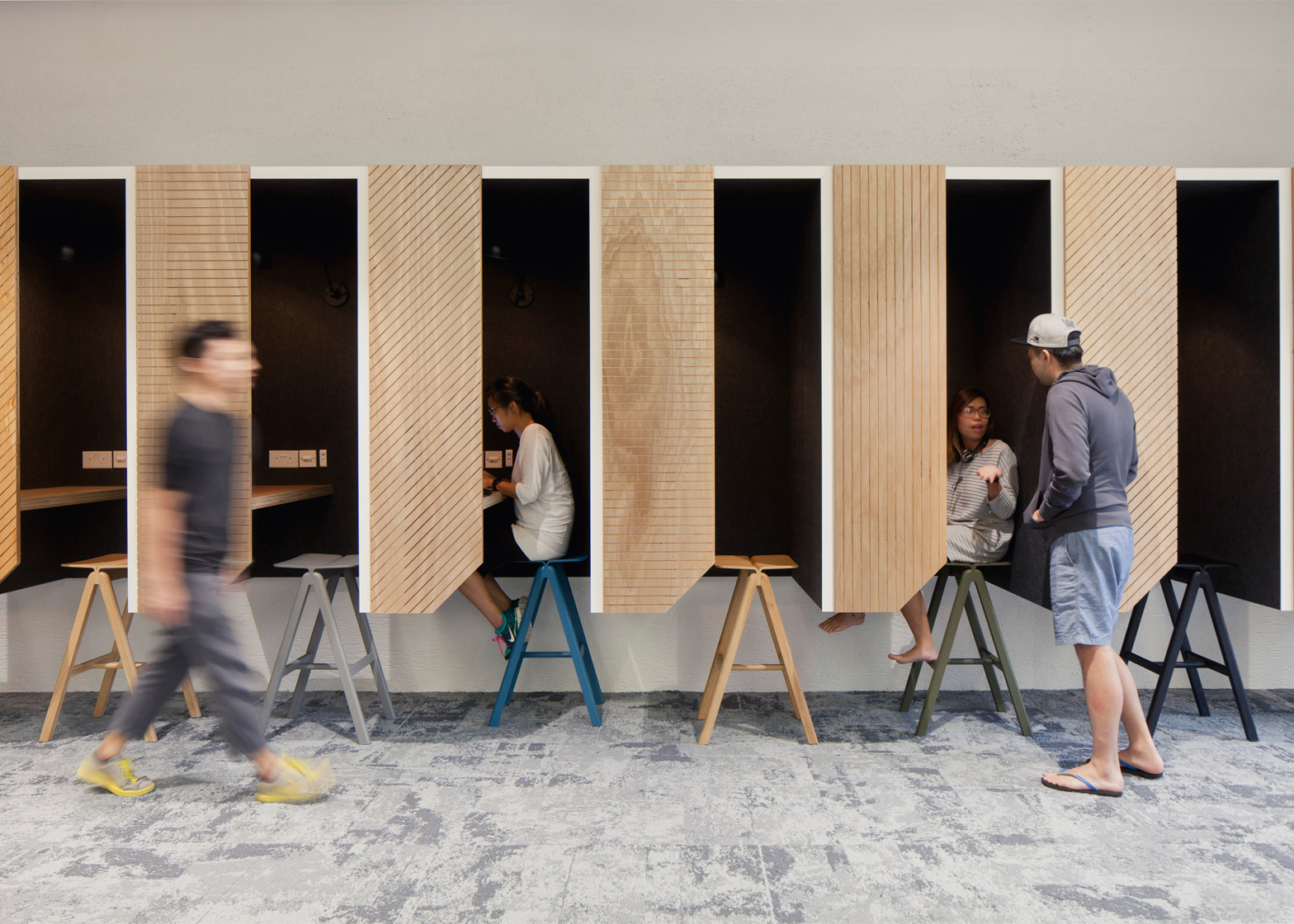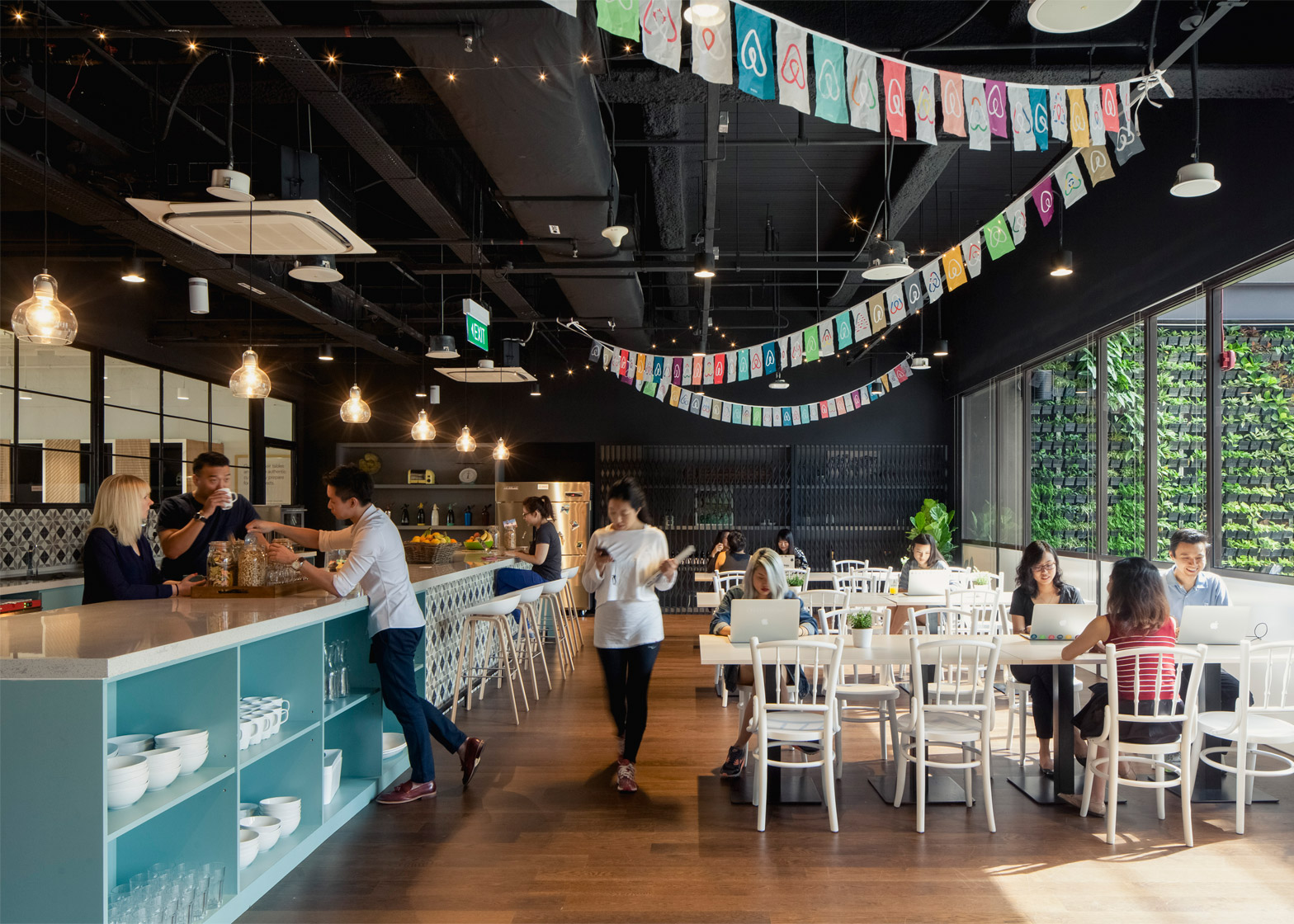Airbnb's offices in London, Sao Paulo and Singapore include features like an indoor village green, bleacher-style seating and a reception desk modelled on a front porch (+ slideshow).
The international offices are all intended to reflect the online rental company's 'belong anywhere' ethos, and each interior has been created in collaboration with local design studios.
The offices feature areas modelled on Airbnb apartment listings from around the world and include a variety of adaptable spaces, like the London office's "village green", which can be used for purposes ranging from informal working to presentations.
The company's Singapore outpost was designed with local multidisciplinary design practice Farm, who incorporated Singapore building typologies and materials into the interior.
The reception is modelled on a front porch – a common characteristic of many homes in Singapore — while the central staircase that connects the three floors is "the Skyscraper".
Enclosed in traditional ventilation blocks – concrete grids that are usually used to allow air to flow through a structure – it is integrated into the workspace with a reading nook, bar seating and a "clubhouse" at the bottom.
Conference rooms are decorated to replicate homes available to rent on Airbnb – a common feature throughout all the company's offices.
"The conference rooms are delivered similar to a furnished apartment – our employees bring the special touches that make them personal and alive," said Airbnb.
The design of the Sao Paulo office was headed up by locally based firm MM18, whose goal was to create a "mature and beautiful" office.
"We chose to work with MM18 for their comprehensive knowledge of Brazilian culture and design," said Airbnb.
"Through MM18, we were able to bring in local fabricators, furniture designers, textile designers and industrial designers."
The size of the relatively small Airbnb team in this location was something that heavily influenced MM18's office design, and it was important that the space accommodated informal coffee meet-ups and lunches.
They also wanted to provide enough space for a growing and developing team, while conveying the feel of an Airbnb property in Brazil.
They selected an existing modern building for the office, located in Vila Madalena – a neighbourhood known for its art, restaurants and culture – and organised the space around a large gathering area that includes an open kitchen and a series of large tables.
Bench and terrace seating surrounding the central space is inspired by the work of Brazilian landscape architect Roberto Burle Marx.
In London, Airbnb chose to work with architecture firm Threefold for their previous work with arts projects and organisations in the city.
Through their design, the studio aimed to showcase the architectural history of London and the rest of the UK.
"The concept took typical components of historic British settlements — the farm, the green, the market, the library, the terrace — and distilled their key spatial and social characteristics to create a microcosm of such a community," said Airbnb.
A kitchen-like space forms the social hub of the office and acts as a welcoming area for guests and an informal workspace for staff.
Threefold based the aesthetic of this area on a traditional farmhouse kitchen and added snug seating zones, a large farmhouse table and open kitchen area.
A library area offset from the central Village Green provides a quiet working space for staff and is surrounded by a series of individual seating booths.
An area called The Pavilion sits at the edge of the green and is the largest private meeting area in the office, while the Market Square area has large tables and standing desks for collaborative working.
Airbnb was founded in 2008 by Rhode Island School of Design graduates Joe Gebbia and Brian Chesky as a site that would allow travellers to stay in ordinary homes instead of hotels.
In an interview with Dezeen, Chesky talked about how sceptical Silicon Valley had been that two designers could build a successful home-stay booking website. Airbnb is now bigger than most hotel chains.
British designer Ilse Crawford, who was one of the designers that installed their interpretations of 'home' in London's Trafalgar Square, told Dezeen that Airbnb is causing a sea-change in attitudes towards design by allowing people to experience stylish interiors first-hand rather than via magazines and websites.

